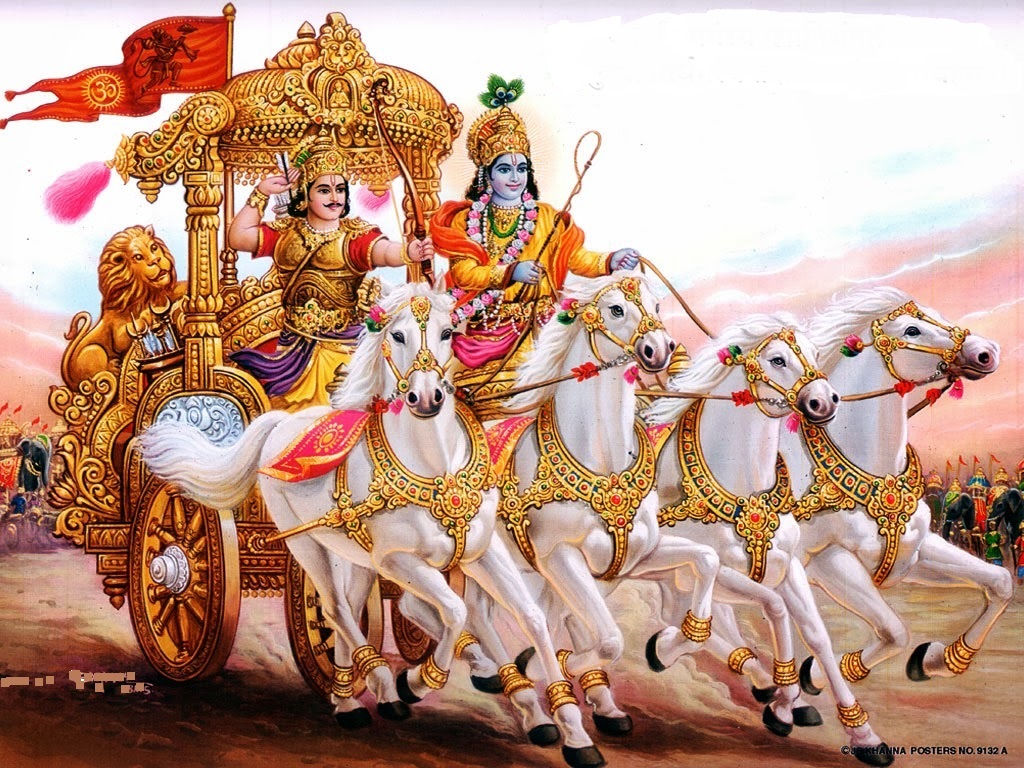The Philosophy of the Bhagavadgita-1.2
16/05/2018
Chapter 1: The Universal Scope of the Bhagavadgita-2.
2.
Why are we inspired when we read the plays of Shakespeare? Because we are present there. Every one of these special characters that Shakespeare, for instance, delineates with the masterly stroke of his pen corresponds to our own self in some manner or the other. Every character of Shakespeare is present in us and we are every one of these. So, we are in sympathy within, we are en rapport with all these characters, and so we are stimulated by a study of his plays.
It is human nature as such that is displayed in the dramas of Shakespeare, the epics of Homer or the Mahabharata. It is not the story of some people that lived some time ago but a characterisation of all people that may live at any time in the history of the world. They are not stories of certain people only; they are stories of people as such, of any person, and the nomenclature of these personalities is only by the way. The essentiality is the attitude, the character and the conduct and the personal and social features that they demonstrate in their temporal existence.
The characters are perpetual features in the evolution of the cosmos, while the vehicles which embody or enshrine these characters may vary. These are the specific stages through which the world has to pass, and every individual is a part of the world. Everyone has to traverse every one of these stages. Every character is every person, and vice-versa.
Thus, while the epic of the Mahabharata, like some other epics also of this nature, attempts to portray the culture of an entire nation, or, we may say, the culture of humanity in general, it pinpoints its teachings at a central occasion which it regards as the most convenient hour to give its message in its essentiality.
To be continued ..





Comments